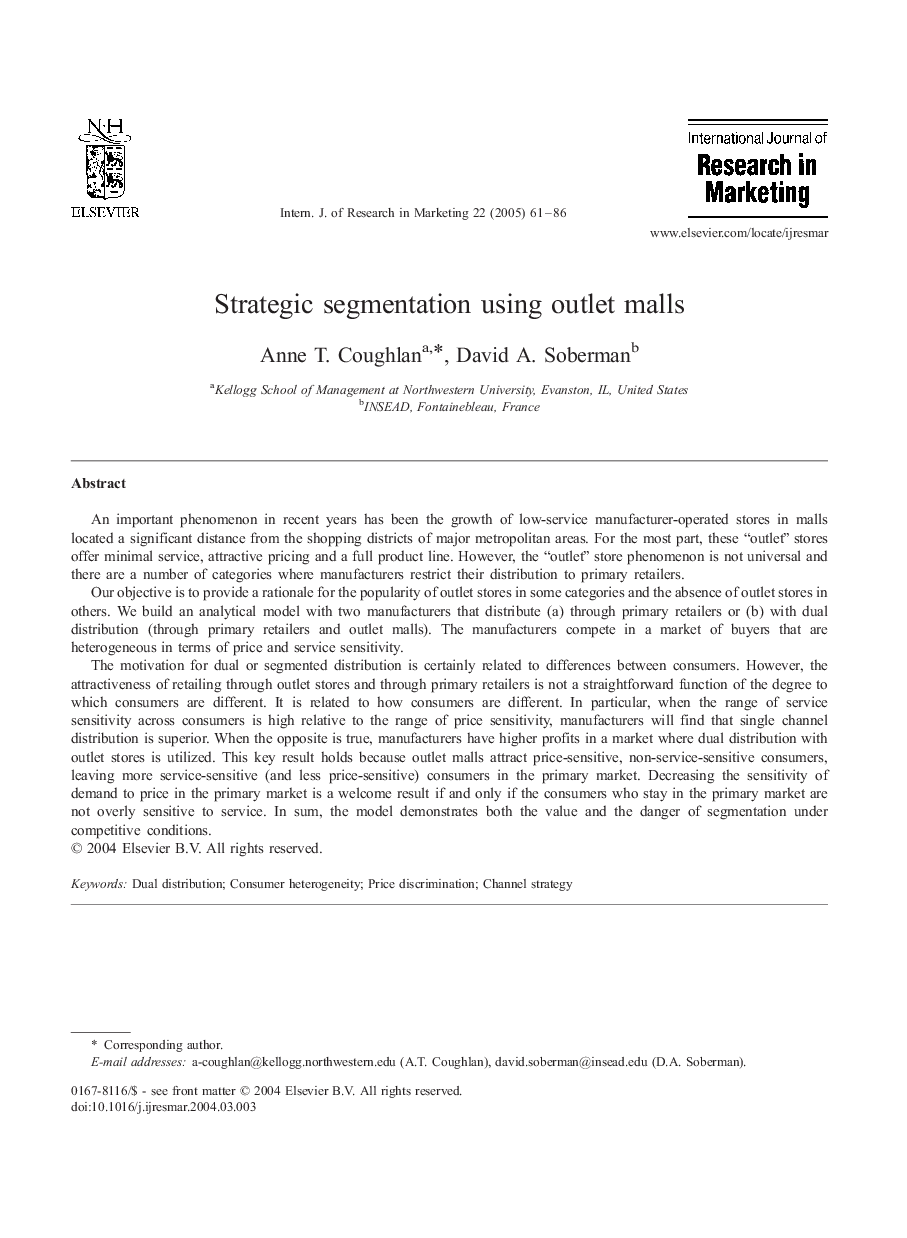| Article ID | Journal | Published Year | Pages | File Type |
|---|---|---|---|---|
| 9719032 | International Journal of Research in Marketing | 2005 | 26 Pages |
Abstract
The motivation for dual or segmented distribution is certainly related to differences between consumers. However, the attractiveness of retailing through outlet stores and through primary retailers is not a straightforward function of the degree to which consumers are different. It is related to how consumers are different. In particular, when the range of service sensitivity across consumers is high relative to the range of price sensitivity, manufacturers will find that single channel distribution is superior. When the opposite is true, manufacturers have higher profits in a market where dual distribution with outlet stores is utilized. This key result holds because outlet malls attract price-sensitive, non-service-sensitive consumers, leaving more service-sensitive (and less price-sensitive) consumers in the primary market. Decreasing the sensitivity of demand to price in the primary market is a welcome result if and only if the consumers who stay in the primary market are not overly sensitive to service. In sum, the model demonstrates both the value and the danger of segmentation under competitive conditions.
Related Topics
Social Sciences and Humanities
Business, Management and Accounting
Marketing
Authors
Anne T. Coughlan, David A. Soberman,
